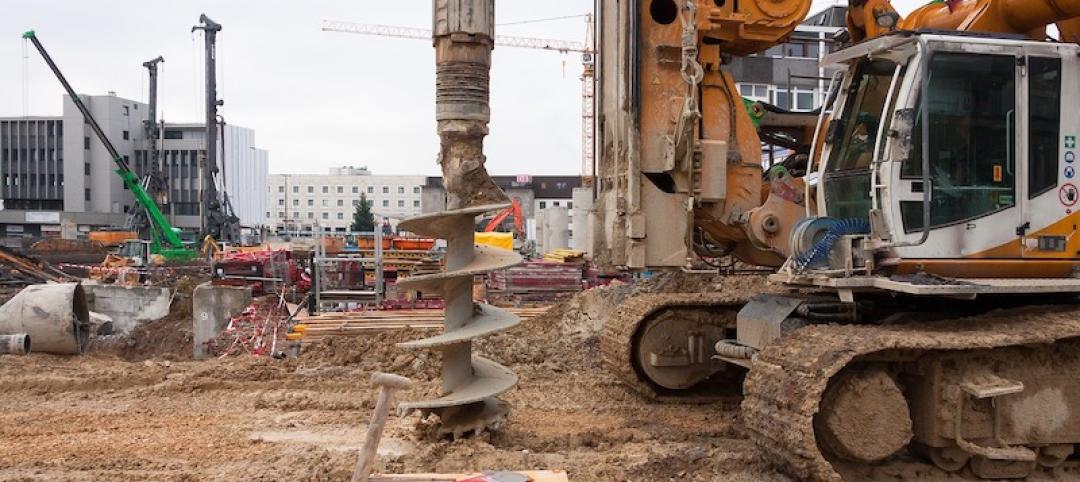The International Code Council surveyed building and fire departments to learn how code officials are coping with the professional challenges brought on by the COVID-19 pandemic. From March 22 through April 1, 2020, more than 1,150 respondents from all 50 U.S. states and the District of Columbia provided input. Respondents came from jurisdictions of all sizes ranging from 1,000 people to over 4.6 million.
The survey collects trends, ideas, solutions and best practices from code officials about how they are keeping up with new building permits and new construction during the pandemic months.
Although the U.S. Department of Homeland Security has determined the work of building and fire prevention departments to be essential to the nation’s response to the coronavirus pandemic—and no state has made a contrary determination—6 in 10 survey respondents did not have the capability to remotely carry out critical aspects of their work. With many departments already under resourced and many state and local governments facing severe revenue downturns resulting from the coronavirus pandemic, it is critical that federal coronavirus response funding be directed to building and fire prevention departments that need it to continue their essential functions. Such investments would speed the restart of our economy and produce lasting reductions in departmental operation costs and permitting timelines.
The recently passed Coronavirus Aid, Relief, and. Economic Security Act (CARES Act, H.R. 748), provides state, local, tribal, and territorial (SLTT) governments with $150 billion through a Coronavirus Relief Fund (CRF) for necessary spending in response to this public health emergency, $45.4 billion through FEMA’s Disaster Relief Fund (DRF), and $5 billion through the Community Development Block Grant (CDBG) program. Funding that enables code departments to work remotely should be an eligible activity under the CRF, and both the DRF and CDBG program have funded code enforcement activities previously. The Code Council has also urged the U.S. Congress to allocate support specifically for code department remote capabilities as part of a fourth coronavirus response measure Congress is currently considering.
The main survey findings are:
- The majority of departments surveyed (93%) are still performing inspections, either remotely or in-person. This falls in line with what the Code Council expected given that many areas have classified construction and code compliance activities as essential.
- More than half (65%) of respondents said that some or all employees that conduct plan review or inspections are working remotely.
- A large percentage of jurisdictions (66%) use a combination of electronic and hard copy versions of building safety codes, while a much smaller percentage of jurisdictions (7%) have advanced to using all electronic. 27% of respondents said their jurisdiction used only hard copies. This could create challenges where hard copies are shared and departments do not have enough hard copies for each now-remote employee that needs them. In fact, 23% said their employees do not have access to needed hard copy code books.
-
Many jurisdictions have made the switch to electronic services, but a large percentage still do not have the capacity to go virtual. In particular:
- 40% do not have the capability to do electronic/remote plan reviews.
- 30% do not have the capability to do any aspect of electronic/remote permitting.
- 61% do not have the capability for electronic/remote inspections.
- To expand services to fight the coronavirus pandemic, many healthcare facilities are putting beds in alternative locations (like school gymnasiums, hotels, outpatient surgical centers) or in temporary structures in their parking lots. 26% of respondents have encountered requests for permits for temporary occupancy and/or temporary structures as a result of the COVID-19 pandemic.
“The results of this survey show how quickly and efficiently many Code Council governmental members have moved from office work to telework and have adapted to a new virtual work environment,” said Code Council Chief Executive Officer Dominic Sims, CBO. “Now more than ever, we are reminded of the importance of building safety. Throughout this crisis, the Code Council will remain committed to its mission to advocate for building safety professionals around the world and identify new ways to contribute to public safety.”
“Code officials are essential to keeping our communities safe and protected. Especially during these difficult times when we find our greatest protection from remaining inside, their continued service to ensure building and public safety is critical,” said Code Council Senior Vice President of Government Relations Sara Yerkes. “We commend the offices across the nation that have virtually reframed their operations and we urge Congress, states and local governments to recognize the need for an allocation of resources directed to building departments to continue the important work of ensuring new construction and remodeling projects meet fundamental safety standards.”
This survey is ongoing, and the Code Council will continue to collect responses to these important questions. Forthcoming will be a document outlining best practices on virtual code compliance activities.
View the survey report and infographic.
Related Stories
Coronavirus | Mar 20, 2020
AIA implores Congress to provide relief to business owners and employees
The American Institute of Architects (AIA) 2020 President Jane Frederick, FAIA, and EVP/Chief Executive Officer Robert Ivy, FAIA, are urging Congress to address the critical needs of business owners and employees during the COVID-19 pandemic.
Coronavirus | Mar 20, 2020
Extending care capacity as COVID-19 grows
Coronavirus threatens to overwhelm the U.S. healthcare system. LEO A DALY’s health practice leader offers some innovative ideas for expanding access.
Coronavirus | Mar 19, 2020
Positive vibes: Let's take a look at the brighter side of these crazy times
Perhaps now is a good time to take a page from Monty Python's book and look on the bright side of life. So let's push aside the doom and gloom for a bit and bring a little positivity to these strange times we all currently find ourselves in.
Coronavirus | Mar 19, 2020
Force Majeure and COVID-19 in construction contracts - What you need to know
With the onset of the COVID-19 pandemic, we are all taking a closer look at many portions of our contracts.
Coronavirus | Mar 19, 2020
Technology crucial during COVID-19 social distancing
Technology can help bridge the gap during the Coronavirus pandemic as higher education institutes and corporations are moving to a remote work model.
Coronavirus | Mar 18, 2020
Coronavirus latest: Short-term pain but strong rebound likely, says Oxford Economics
Once the disruption and uncertainty fade, the rebound in global economic activity will be strong. It’s important for firms to position themselves for such a recovery.
Coronavirus | Mar 18, 2020
We are in the midst of a paradigm shift for higher education
The question for higher education is, what will the university of the future look like?
Coronavirus | Mar 17, 2020
AIA: Design services saw increase in February, but economic footings are rapidly shifting
"The rapid pull-back in activity throughout the economy will obviously be felt in the design and construction sector, and architecture firms will be one of the first to see how these events play out,” said AIA Chief Economist, Kermit Baker, Hon. AIA, PhD.
Coronavirus | Mar 17, 2020
AGC to government officials: Shutting down construction projects is an unnecessary step
Construction firms are already taking steps to protect employees, most of whom already wear protective equipment, while halting work will undermine efforts to add hospital capacity.
Coronavirus | Mar 16, 2020
Boston mayor orders shut down of construction sites due to coronavirus
Boston Mayor Martin Walsh has ordered that all construction projects in the city be suspended in response to the spread of the coronavirus.

















